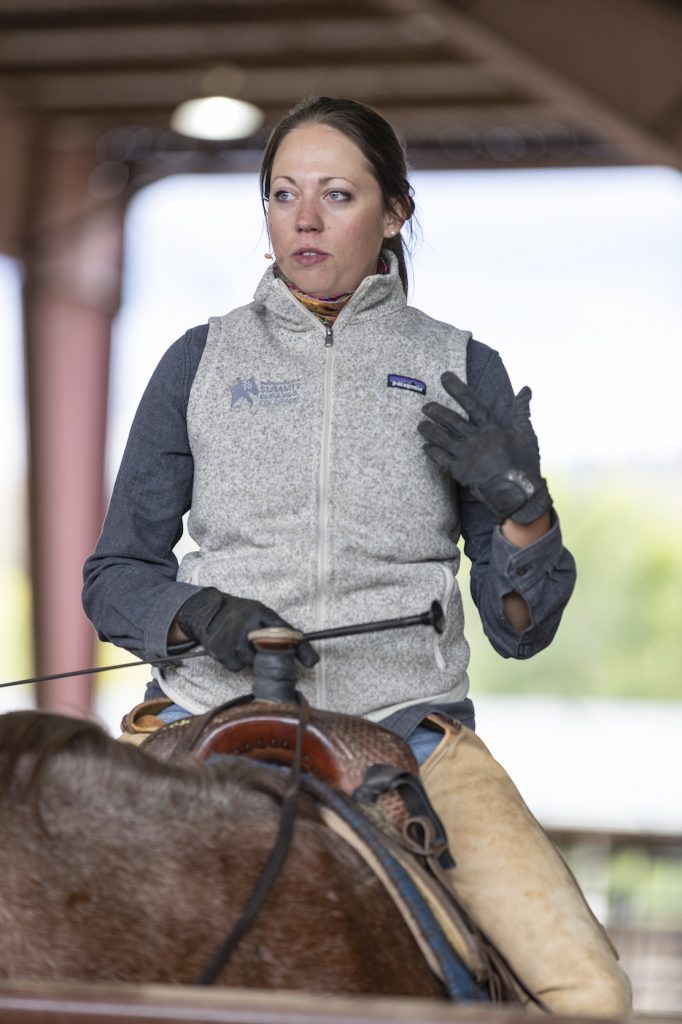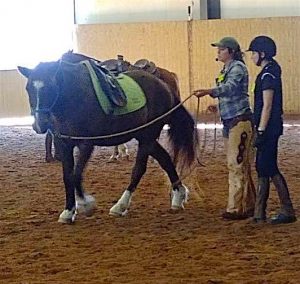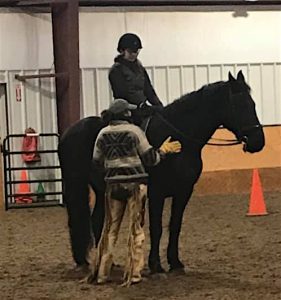
Photo by Scott Smith
Editor’s Note: Amy Skinner is a regular guest columnist and has been a horse gal since age six. She will present with fellow trainer and rider, Katrin Silva, at the Best Horse Practices Summit.
Skinner rides and teaches dressage and Western. Skinner has studied at the Royal Andalusian School of Equestrian Art in Spain, with Buck Brannaman, Leslie Desmond, Brent Graef, and many others. Check out Amy’s website here.
Skinner writes:
I have taught around the country and seen all kinds of people with all kinds of goals, riding all kinds of horses. I have students of all ages, income ranges and disciplines, even some with physical disabilities.
What I’ve learned is that it doesn’t matter what kind of horse someone has, what financial situation the owner is in, what their age or physical limitations are. The folks who make real progress are the ones who want it, show up, do the work, and who are teachable.
What does it mean to be teachable?
I’m a student, too. So from one student to another, here are some tips:
- Don’t spend valuable lesson time telling your instructor what you know or what you do. It’s likely your instructor can see right away what your habits are and what your skill level is. The time you spend sharing these details with your instructor wastes time that could be used for actual instruction.

- Be open to criticism. Don’t take any of it personally. Your instructor is doing their best to help you. However, if you find they are overly critical without giving positive direction, find a new instructor. Listen more than you talk. But ask questions freely and if something doesn’t make sense, don’t be afraid to ask for clarification.
- Chatting about unrelated things can take away from the time an instructor has to help you in, though a little small talk can help ease nerves or keep students relaxed.
- Do mention health problems, fear issues, and other safety-related concerns to your instructor.
- Be willing to work hard. You don’t need to break a sweat every lesson to make progress, but spending lesson time making excuses for what you can’t or won’t do makes it hard for the instructor to help you advance. A teacher can only lead you to knowledge. It’s up to you to turn that into progress.
- Do take your horse into consideration. You probably know your horse better than anyone else, and if the work seems too much for your horse, say so. A good instructor has a sharp eye for a horse’s expression and needs, but they don’t know your horse’s history of lameness or any ongoing issues. Be your horses’ advocate.
 Being a good student is probably harder than being a good rider. Learning in front of someone is a very vulnerable thing to do. I have tremendous respect for anyone willing to give self-improvement a try, especially in a public setting like a clinic.
Being a good student is probably harder than being a good rider. Learning in front of someone is a very vulnerable thing to do. I have tremendous respect for anyone willing to give self-improvement a try, especially in a public setting like a clinic.
A lesson or clinic is a great time to:
- be open-minded
- try new things
- expand your comfort zone.
It is not a time to:
- show off
- worry about how you look
- let your ego get in the way.
A good instructor should make a clinic or lesson a safe place to experiment in and should not make you feel the lesser for making mistakes or for what you don’t know. I’ve been a student longer than I’ve been a teacher of riding and horsemanship. Any success I’ve had in teaching I owe to also being a student – I still take frequent lessons, and while I’m more selective about who I ride with, I never find that I know enough.
Some good points here. Being a student of the horse is a life time journey. We can never stop learning and investing in our horsemanship either. Thanks for this. K